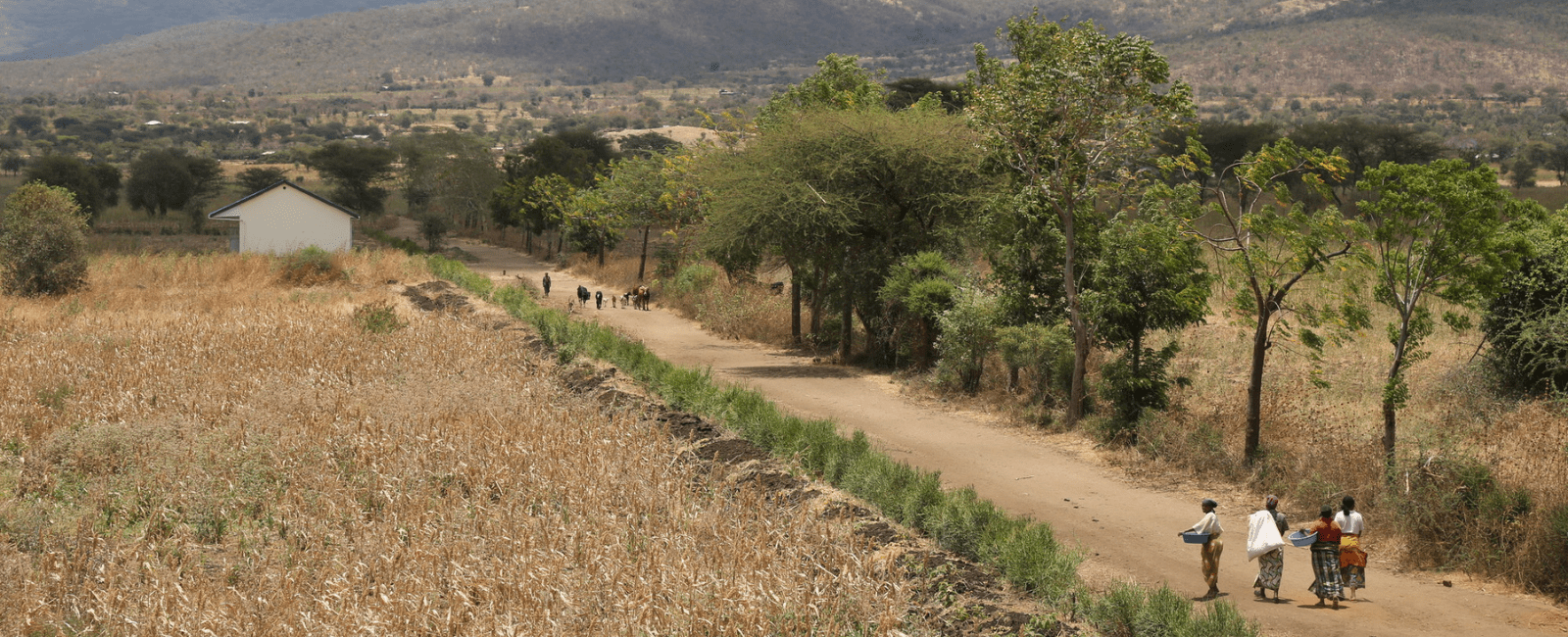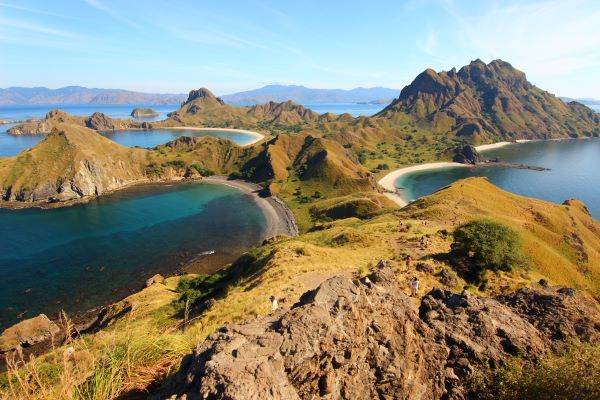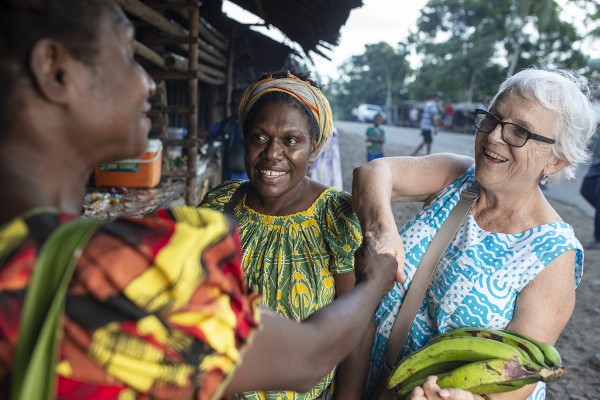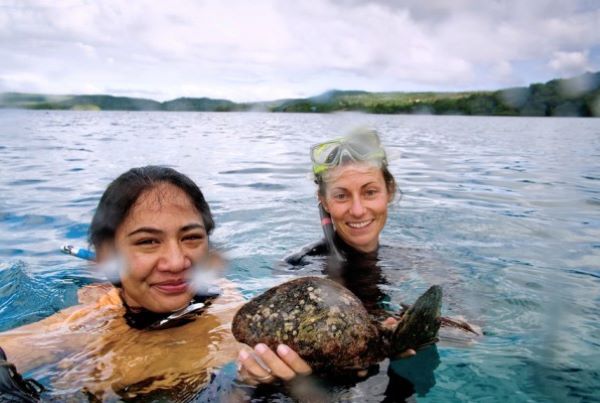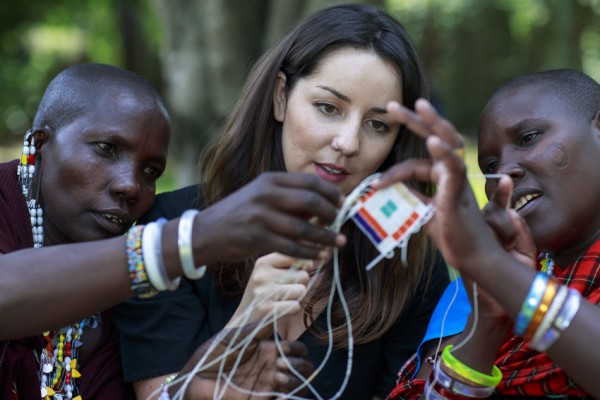
Have you ever considered travelling as a voluntourist? Imagine embarking on a journey to an exotic destination along with other passionate individuals, not as tourists, but as dedicated helpers, lending a hand to local communities and making a meaningful impact across a range of projects, from preserving the environment to improving healthcare.
The Australian Volunteers Program has a vibrant legacy that dates back to the 1950s, igniting a spark of cultural understanding between Australia and Indonesia. Fast forward to today, and they have a line-up of government-backed programs like Australian Volunteers Abroad, Australian Youth Ambassadors for Development, and Australian Volunteers for International Development ready for you to join.
So, if you've been yearning for a travel experience that goes beyond the ordinary, where you can make a difference and leave a lasting impact, join the ranks of over 16,000 Aussie voluntourists fearlessly tackling development challenges. Here’s what you want to know.
Tanzania
Set out on a transformative volunteering expedition in Tanzania, home to Africa's highest peak - Mount Kilimanjaro - and many of the continent’s great lakes and wildlife reserves. Australian volunteers have been supporting local organisations since 1992, addressing priorities like women's empowerment, agriculture, healthcare, and poverty reduction.
Language: English is widely spoken, but learning basic Kiswahili phrases will enhance the volunteering experience.
Climate: Tanzania has a diverse climate, from tropical weather on the coast to its cooler highlands. Two rainy seasons occur, and the central plateau is generally dry.
Telecommunications: Tanzania has reliable and affordable internet connectivity through major mobile phone providers.
Food: supermarkets and restaurants offer a range of local and international cuisines, including options for vegetarians and vegans.
Accommodation: various accommodation options are available, such as private houses, apartments, and long-term bed and breakfasts.
Transport: public buses, taxis, and ride-sharing apps are common for local transportation. Trains connect major cities.
Personal safety: Tanzania is generally safe, but precautions against petty crimes are advised.
Accessibility: efforts are made to ensure inclusive volunteering opportunities for diverse backgrounds and disabilities.
Find available assignments in Tanzania.
GETTING THERE
Indonesia
Indonesia, with its diverse archipelago of more than 17,000 islands and over 400 volcanoes, 100 of which are active offers a wide range of volunteering opportunities. From working with local organisations to empower women and promote gender equality, to supporting environmental conservation efforts and sustainable tourism initiatives, volunteers play a crucial role in driving positive change.
The country's bustling cities like Jakarta and Yogyakarta offer a vibrant blend of tradition and modernity, while rural areas provide a glimpse into the traditional way of life. Volunteers in Indonesia can engage in activities such as community development, education, health, agriculture, and more.
Culture, religion and dress: volunteers in Indonesia should approach their role with a conservative mindset, respecting local practices of modesty in dress and behaviour.
Language: while there are many indigenous languages, learning basic Bahasa Indonesia is essential for effective communication, as English is limited outside major urban areas.
Climate: Indonesia has a tropical climate with high humidity and warm temperatures year-round, experiencing a wet season from October to April and a dry season from May to September.
Telecommunication: good and affordable telecommunication options are available, with WhatsApp being the primary form of communication, while free Wi-Fi is commonly found in restaurants, coffee shops, hotels, and shopping centres.
Food: Indonesian cuisine is diverse and widely available, with traditional markets, food stalls, and restaurants offering a variety of dishes. Vegetarian and vegan options may be limited, but fresh produce, tofu, and tempeh are readily accessible.
Find available assignments in Indonesia.
GETTING THERE
Papua New Guinea
Papua New Guinea, Australia’s closet neighbour, has the third largest rainforest in the world and offers an opportunity to experience the rich cultural diversity as a volunteer. With over 800 languages spoken and a strong traditional heritage, Papua New Guinea presents volunteers with a rich cultural tapestry to immerse themselves in. As a volunteer, you can contribute to various development projects, working alongside local communities to address challenges in areas such as education, healthcare, IT and infrastructure.
Papua New Guinea's rugged terrain and remote locations provide an adventurous backdrop for your volunteering journey. From the lush rainforests and glistening beaches to the towering mountains and vibrant coral reefs, the country's natural beauty is something to behold.
Culture, communication, and taboos: Papua New Guinea is a diverse country with rural communities operating under their own customs and laws, emphasising the importance of the wantok system and strong social support structures; communication is relaxed and open, with different cultural norms around personal space, affection, and directness, while taboos vary between communities and provinces, encompassing issues related to class, status, gender, and sexuality.
Religion and dress: Christianity is the dominant religion in Papua New Guinea, alongside indigenous beliefs, and volunteers are advised to adopt a patient, conservative approach and dress modestly to blend in with the local culture.
Language: Papua New Guinea is the most linguistically diverse country, with over 800 living languages, but the widely spoken Tok Pisin and English serve as official languages; volunteers are encouraged to learn basic Tok Pisin to enhance community interactions.
Climate: the country experiences a tropical climate with two seasons, rainy and dry, and an average temperature of 28°C, making layering advisable. Being in an active seismic area, earthquakes and volcanic eruptions are potential natural disasters.
Food: food holds cultural significance in Papua New Guinean society, with variations in local produce and preparation methods; sharing is customary, and traditional staples include coconut, fish, sago, bananas, cabbage, taro, cassava, and sweet potato, acquired from local markets or itinerant vendors, while urban areas offer supermarkets with higher prices.
Accommodation: suitable housing is arranged by the program, often in secure compounds with furnished units, requiring personal items like bedding.
Transport: public transport is not allowed; partner organisations provide work transport, and the program offers secure transport services for non-work hours; driving permission is case-dependent but usually not chosen.
Personal safety: volunteers should be aware of risks, as crimes like robbery and carjacking are common, especially in urban areas; ethnic tensions and tribal fighting occur, so vigilance, avoidance of settlement areas and large crowds, and enhanced security measures are advised for a safe experience.
Accessibility: the program prioritises inclusivity and accessibility, offering access and inclusion plans for volunteers with disabilities and Indigenous Pathways for culturally safe support to Aboriginal and Torres Strait Islander volunteers.
Find available assignments in Papua New Guinea
GETTING THERE
Tonga
The Kingdom of Tonga is a captivating Polynesian country, where rugged volcanic slopes meet the sandy beaches of 169 low-lying coral islands. Australian volunteers have supported Tongan partner organisations to achieve their development goals since 1965 with current openings supporting improving health services, disaster management and risk reduction, empowerment and protection of women and girls, disability support, public health and health promotion, economic development and environment skills training.
Culture, religion, and dress: Tonga's culture has evolved over time, influenced by Western traders and missionaries, resulting in a blend of old and new customs. Sunday is a day of rest and worship, with the church serving as a central social hub. Tongans wear modest clothing on most occasions.
Language: Tongan is the primary language in Tonga, with English as the secondary language. Volunteers are encouraged to learn Tongan to better communicate with locals, who may feel more comfortable speaking their native language.
Climate: Tonga experiences a tropical maritime climate with two distinct seasons, a cooler and drier period from May to November, and a warmer and rainier season from December to April. Cyclone season occurs from November to March.
Telecommunications: Internet and telephone/mobile services are generally reliable, with two networks, UCALL and DIGICEL, offering various packages. Volunteers can communicate with partner organisations via email and social media.
Food: Tongan cuisine is rich in protein, carbohydrates, and tropical fruits, featuring dishes like marinated raw fish ('ota), lobster, fish, steamed pork, and more. Food can be purchased at markets and supermarkets, but gluten-free options may be limited.
Accommodation: accommodation prices vary, with urban areas usually more expensive. Sharing a house with other volunteers is recommended to afford suitable housing.
Transport: cycling is common on the flat island of Tongatapu, while buses and taxis are the main forms of public transport. Some volunteers opt to purchase a car for convenience. Travel to outer islands involves boat rides or flights on Tonga Airlines.
Personal safety: Tonga actively addresses drug-related issues, and volunteers are advised to be cautious. Stray dogs can pose a threat so carrying rocks or sticks for protection is recommended. Walking alone at night is discouraged.
Accessibility: efforts are made to ensure inclusive and accessible volunteering opportunities for individuals from diverse backgrounds, with access and inclusion plans available for volunteers with disabilities. Indigenous Pathways is a program that provides culturally safe support for Aboriginal and Torres Strait Islander volunteers.
Find available assignments in Tonga.
Are you ready to plunge into a meaningful adventure? Let's redefine travel, one project at a time.

